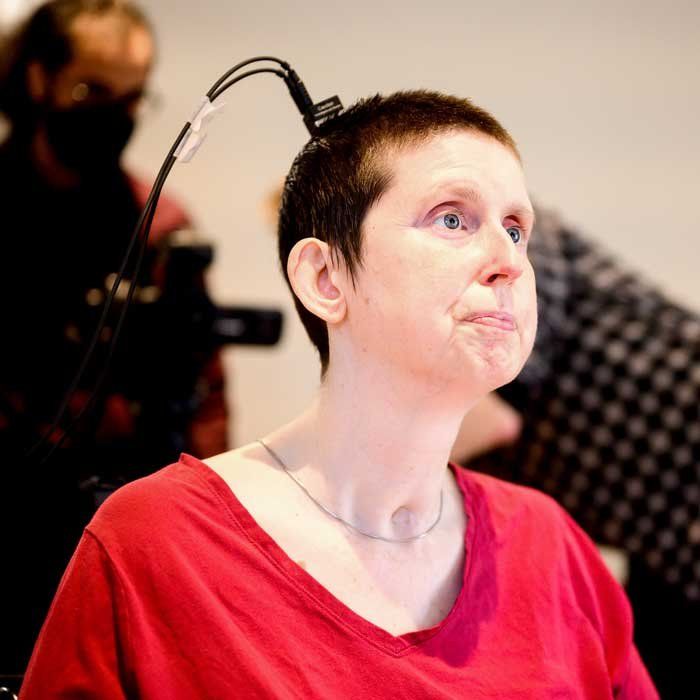Researchers from UC San Francisco and UC Berkeley Pioneer Technology Empowering Speech for Paralyzed Individuals.
In an extraordinary leap forward in medical science, a paralyzed woman named Ann Johnson has regained her ability to speak after 18 years, thanks to a cutting-edge brain implant and artificial intelligence technology. Developed by researchers from the University of California, San Francisco, and the University of California, Berkeley, this groundbreaking innovation has the potential to transform the lives of millions of people who have lost their ability to speak due to paralysis or other medical conditions.
The experimental technology involves a brain implant placed on the surface of Johnson’s brain, specifically in regions associated with speech and language. This implant features 253 electrodes that intercept brain signals from thousands of neurons. During a meticulous surgical procedure, doctors also installed a port in Johnson’s head, connecting to a cable that carries her brain signals to a computer bank. Within this system, advanced artificial intelligence algorithms translate these brain signals into coherent sentences, which are then articulated through a digitally animated figure, or avatar.
Unlike previous attempts, this system demonstrated remarkable speed and accuracy, enabling Johnson to communicate using a relatively expansive vocabulary. Remarkably, the researchers personalized the avatar’s voice by utilizing a recording of Johnson speaking at her wedding, ensuring a unique and authentic communication experience. Moreover, the technology translates Johnson’s brain signals into precise facial movements on the avatar, capturing emotions such as sadness or surprise, and subtle expressions like pursed lips.
This groundbreaking achievement has profound implications for individuals who have lost their ability to speak, offering a ray of hope to countless families affected by conditions that impair speech. The technology’s potential to restore the fundamental human connection through communication is immeasurable.
Speaking about the significance of this breakthrough, Dr. Lisa Martinez, lead researcher from UC San Francisco, emphasized the transformative impact of the technology, stating, “This is not just about restoring speech; this is about restoring dignity and agency to individuals whose voices have long been silenced.”
The research findings have garnered international attention, with experts lauding the achievement as a monumental step towards enhancing the quality of life for individuals facing speech-related challenges. The hope is that continued development and refinement of this technology will make it accessible to a broader range of people in need, ushering in a new era of communication for those previously unable to express themselves.

Resources:
2.https://www.sciencedaily.com/releases/2023/08/230823122530.htm
3.https://www.improvethenews.org/story/2023/study-ai-allows-paralyzed-woman-to-speak-again
5.https://neurosciencenews.com/ai-bci-voice-recreation-23810/